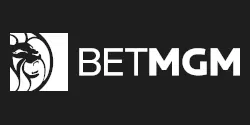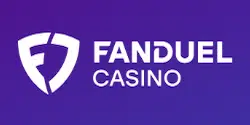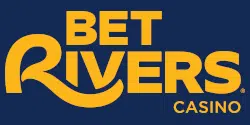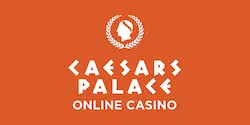Michigan Online Casinos
Legal online casinos came to Michigan courtesy of legislation signed into law by Governor Gretchen Whitmer in December 2019. Under the Lawful Internet Gaming Act, Michigan casinos may apply for licenses to offer online gambling to customers who are 21 or older and located within state lines.
The first Michigan online casinos launched in January 2021 following the implementation of the Act. In the ensuing two years, the number of online casinos swelled to 15, which is the maximum allowed under Michigan law.
Legal Michigan gambling sites may offer a full range of casino games, including real money slots, table games, live dealer games, and online poker.
The Michigan Gaming Control Board (MGCB) oversees online gambling throughout the state and is responsible for issuing licenses, implementing the law, and ensuring operators adhere to state regulations.
Legal Michigan Casino Sites
 $25 On Signup + $1000 Deposit BonusBetMGM Casino Bonus Code: BUSABONUS
GAMBLING PROBLEM? Call 1-800-GAMBLER (NJ, PA, WV) or call 1-800-270-7117 (MI) for confidential help. Must be 21+. MI, NJ, PA, and WV only. Please gamble responsibly. Visit BetMGM.com for terms and conditions. All promotions are subject to qualification and eligibility requirements. Rewards issued as non-withdrawable site credit unless otherwise provided in the applicable terms. Rewards subject to expiry.
$25 On Signup + $1000 Deposit BonusBetMGM Casino Bonus Code: BUSABONUS
GAMBLING PROBLEM? Call 1-800-GAMBLER (NJ, PA, WV) or call 1-800-270-7117 (MI) for confidential help. Must be 21+. MI, NJ, PA, and WV only. Please gamble responsibly. Visit BetMGM.com for terms and conditions. All promotions are subject to qualification and eligibility requirements. Rewards issued as non-withdrawable site credit unless otherwise provided in the applicable terms. Rewards subject to expiry.
 500 Bonus Spins + $1000 Loss RefundFanDuel Casino Promo Code: Not Needed
21+ and present in CT, NJ, PA, MI or WV. Bonus issued as non-withdrawable casino credits. Gambling Problem? Call 1-800-GAMBLER or visit FanDuel.com/RG (NJ, PA, MI), or visit www.1800gambler.net (WV) or https://ccpg.org/chat (CT).
500 Bonus Spins + $1000 Loss RefundFanDuel Casino Promo Code: Not Needed
21+ and present in CT, NJ, PA, MI or WV. Bonus issued as non-withdrawable casino credits. Gambling Problem? Call 1-800-GAMBLER or visit FanDuel.com/RG (NJ, PA, MI), or visit www.1800gambler.net (WV) or https://ccpg.org/chat (CT).
 $500 Deposit BonusBetRivers Casino Bonus Code: BUSA
Gambling problem? Call or TEXT 1-800-GAMBLER. 21+ and present in DE, MI, NJ, PA, or WV. Welcome bonus for new customers only. Playthrough requirements and other restrictions apply. Visit BetRivers for full T&Cs.
$500 Deposit BonusBetRivers Casino Bonus Code: BUSA
Gambling problem? Call or TEXT 1-800-GAMBLER. 21+ and present in DE, MI, NJ, PA, or WV. Welcome bonus for new customers only. Playthrough requirements and other restrictions apply. Visit BetRivers for full T&Cs.
 $10 + $1000 Deposit BonusCaesars Palace Online Casino Promo Code: BUSA10
Must be 21+ and physically present in MI, NJ, PA and WV only. New users and first deposit only. Wager $25+ to receive 2,500 Reward Credits. Max deposit match bonus of $1,000. Minimum wagering within 7 days required to unlock bonuses. NJ bonuses apply to slot play only. Full terms and wagering requirements at Caesarspalaceonline.com/promos. Void where prohibited. Know When To Stop Before You Start.® Gambling Problem? MI: Call the Michigan Problem Gambling Helpline at 1-800-270-7117; NJ, WV, PA (Affiliated with Harrah’s Philadelphia): If you or someone you know has a gambling problem, crisis counseling and referral services can be accessed by calling 1-800-GAMBLER (1-800-426-2537) or WV: Visit 1800gambler.net; ON: Visit connexontario.ca or call 1-866-531-2600 or text CONNEX to 247247. ©2023, Caesars Entertainment
$10 + $1000 Deposit BonusCaesars Palace Online Casino Promo Code: BUSA10
Must be 21+ and physically present in MI, NJ, PA and WV only. New users and first deposit only. Wager $25+ to receive 2,500 Reward Credits. Max deposit match bonus of $1,000. Minimum wagering within 7 days required to unlock bonuses. NJ bonuses apply to slot play only. Full terms and wagering requirements at Caesarspalaceonline.com/promos. Void where prohibited. Know When To Stop Before You Start.® Gambling Problem? MI: Call the Michigan Problem Gambling Helpline at 1-800-270-7117; NJ, WV, PA (Affiliated with Harrah’s Philadelphia): If you or someone you know has a gambling problem, crisis counseling and referral services can be accessed by calling 1-800-GAMBLER (1-800-426-2537) or WV: Visit 1800gambler.net; ON: Visit connexontario.ca or call 1-866-531-2600 or text CONNEX to 247247. ©2023, Caesars Entertainment
21+ and present in MI. Gambling Problems? Call 1-800-270-7117 for confidential help.
Michigan Online Casino Apps
Each of Michigan’s 12 federally recognized tribes and three commercial casinos applied for a license to offer online gambling. Fifteen provisional licenses were awarded in December 2020, and by April 2022 all licensees had launched their online casino products.
Most Michigan casinos have partnered with name-brand third-party operators to run their internet gaming platforms. Major brands such as BetMGM, BetRivers, DraftKings, and FanDuel are just a few of the larger companies that have partnered with local casinos for online gambling.
- BetMGM Casino
- BetRivers Casino
- FanDuel Casino
- Caesars Palace Online Casino
- Hard Rock Bet Casino
- Golden Nugget Casino
- DraftKings Casino
- PokerStars Casino
- Horseshoe Online Casino
- Hollywood Casino
- Firekeepers Casino
- PlayEagle Casino
- Fanatics Casino
- Four Winds Casino
- Play Gun Lake Casino
Michigan Online Casino Bonuses
Casino bonuses and other promotions play a significant role in Michigan’s online gambling industry.
For one, Michigan is an open market state with no shortage of operators competing for new users to gain a foothold in the market. The number of Michigan online casinos looking for new users has already resulted in most of the state’s gambling sites launching bonuses and promotions galore.
| MI Online Casino | Promo Code | Welcome Bonus |
|---|---|---|
| BetMGM Casino Michigan Bonus Code | BUSABONUS | $25 Registration Bonus + 100% up to $1,000 |
| BetRivers Casino Michigan Bonus Code | BUSA | 100% up to $500 |
| FanDuel Casino Michigan Promo Code | Not Needed | Up to $1,000 Back On First Day's Losses + 350 Bonus Spins |
| Caesars Casino Michigan Promo Code | BUSA10 | $10 Registration Bonus + 100% up to $1,000 + 2500 Reward Credits |
Additionally, MI online gambling law allows operators to deduct free play promotions from gross gaming revenue for tax purposes. Page one of the Lawful Internet Gaming Act states online gaming providers may deduct free play promotions from taxable revenue for the first five years as follows:
- For years 1-3, operators may claim a free play deduction not to exceed 10% of gross receipts
- For year 4, operators may claim a free play deduction not to exceed 6% of gross receipts
- For year 5, operators may claim a free play deduction not to exceed 4% of gross receipts
- For year 6 and each year thereafter, no deduction of free play is allowed
To put that in plain English, Michigan gambling law will give online casinos a tax break for offering free play bonuses over the first five years. Players are encouraged to capitalize on bonus opportunities early and often, as they may be few and far between once casinos are no longer incentivized.
Michigan Online Casino Deposit Methods
Michigan online gambling regulations authorize a standard variety of casino deposit methods and allow the Gaming Control Board to add additional options as needed.
Under state law, Michigan online casino sites may accept:
- Debit and credit cards
- Cash in person at casinos and other approved locations
- Reloadable prepaid debit cards such as Play+ cards
- ACH bank transfers
- Wire transfers
- “any other means approved by the board”
Michigan Live Dealer Casinos
Live dealer casino games came to Michigan in mid-2021 after the Gaming Control Board authorized Evolution Gaming to livestream staffed table games from a Southfield studio location. Evolution has also opened private live dealer studios for some of the state’s biggest brands, including BetMGM and FanDuel.
Later in 2021, Playtech launched its own live dealer studio in Michigan, and now provides the platform for several MI online casinos.
Additional operators have gotten on board since, and today Michigan is home to 15 live dealer casinos:
- BetMGM
- BetRivers
- Caesars Casino
- DraftKings Casino
- FanDuel Casino
- Golden Nugget Online
- PokerStars Casino
- Hollywood Casino
- FireKeepers Casino
- Play Gun Lake
- Soaring Eagle Casino
- Four Winds Casino
How Michigan Regulates Online Gambling
The Michigan Gaming Control Board (MGCB) is responsible for regulating online gaming, issuing new regulations as needed, reviewing licensing requests, issuing licenses, and overseeing the conduct of licensees.
Additionally, the MI online gambling law directs the MGCB to adopt additional regulations as needed. Under the Lawful Internet Gaming Act, the MGCB has the authority to “do anything necessary or desirable to effectuate this act.”
Some of the MGCB’s key responsibilities include regulating the following:
- Types of games Michigan online casinos may offer
- Technical and financial standards for online gaming operators
- Requirements, standards, and processes for issuing licenses under the Lawful Internet Gaming Act
Michigan Online Gambling Laws
Michigan approved multiple forms of online gambling in the final days of 2019. In addition to legalizing online casinos, lawmakers also approved online poker, sports betting, and daily fantasy sports during that same flurry of activity.
The key online gambling laws in Michigan are:
- HB 4311: The Lawful Internet Gaming Act (online casinos and poker)
- HB 4916: The Lawful Sports Betting Act (retail sportsbooks and mobile sports betting)
- HB 4308: The Fantasy Contests Consumer Protection Act (daily fantasy sports)
Michigan Lawful Internet Gaming Act
Pro-gaming Representative Brandt Iden introduced The Lawful Internet Gaming Act in March 2019 to legalize and regulate online gambling.
The Act slowly made its way through the Michigan legislature over the course of the year as it passed through various committees, received the approval of the House, and then the Senate’s approval.
A similar effort had made it as far as the previous year, but then-Governor Rick Snyder vetoed it at the last minute over problem gambling concerns and worries that legal online gambling would detract from the Michigan Lottery.
Lawmakers sought to avoid a similar outcome the second time around and entered negotiations with Governor Gretchen Whitmer before approving a final version of the bill. Ultimately, pro-gaming lawmakers and Governor Whitmer compromised on tax rates and guaranteed funding for the School Aid Fund and First Responder Presumed Coverage Fund (assisting first responders who contract cancer while on the job).
A Look Inside the Lawful Internet Gaming Act
The Lawful Internet Gaming Act legalizes and regulates online gambling across Michigan. Under the law, land-based casinos may apply for licenses to launch up to two online gambling platforms for traditional casino games and player-vs-player poker.
The Act also includes a handful of baseline regulations but directs the MGCB to adopt additional rules as needed to handle the ins and outs of gaming regulation. See the “How Michigan regulates online gambling” section above for more information on the duties of the MGCB.
Michigan Problem Gambling Resources
Those who would like information about problem gambling or who believe they or someone they know may have a gambling problem can see the following resources for assistance.
- Michigan Gambling Helpline: 1-800-270-7117 (available 24/7)
- Voluntary Self Exclusion Forms: Use these forms to request the MGCB permanently bar entry to licensed Detroit casinos.
- Gamblers Anonymous: National problem gambling group that holds frequent meetings all across Michigan
- National Council on Problem Gambling: National problem gambling help provider; offers anonymous 24/7 help at 1-800-522-4700 (call or text) and live chat.
- Michigan Association on Problem Gambling (MAPG): A non-profit organization funded by donations, grants, and membership fees; works in coordination with commercial casinos, tribal casinos, lotteries, and horse racing facilities.
- List of Gambling Treatment Providers by County: Get local help by finding a problem gambling treatment provider in your area.
The Michigan Department of Health and Human Services also maintains a database of problem gambling help resources here.


